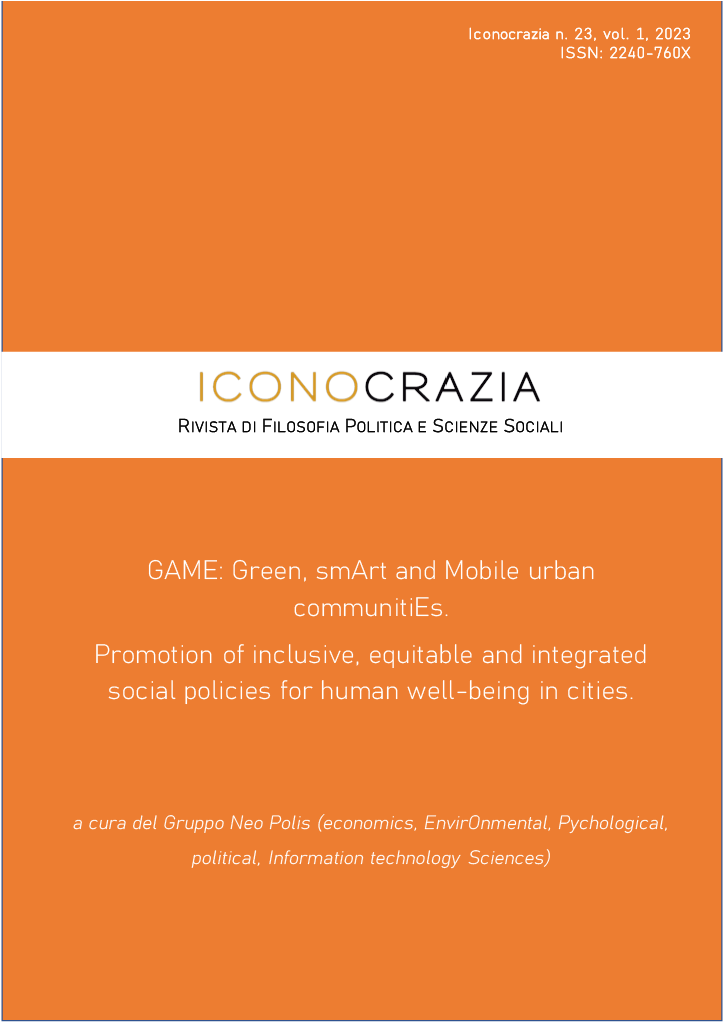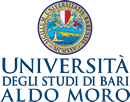La pandemia come crisi e le implicazioni teorico-politiche delle teorie alternative
DOI:
https://doi.org/10.15162/2240-760X/1853Parole chiave:
COVID-19, pandemia, crisi, causalità, salto di specie, pandemic, crisis, causality, spilloverAbstract
Il paper analizza la pandemia da COVID-19 attraverso l’utilizzo del concetto di crisi, delineandone un quadro teorico facente riferimento ad alcuni scritti di Koselleck, Habermas e Debray. A partire da tale cornice teorica viene poi affrontata l’importanza che assume l’indagine sulle cause di una crisi ed il perché non possa che produrre un conflitto interpretativo. Nello specifico della crisi pandemica viene analizzata l’emersione nello spazio pubblico di teorie alternative a quella avallata dalla comunità scientifica e ne viene proposta una tipizzazione in due tesi (una basata sull’incidente di laboratorio e l’altra sulla guerra batteriologica) di cui vengono analizzate le implicazioni politiche e teoriche.
The paper analyses the COVID-19 pandemic using the concept of crisis, defining a theoretical framework referring to some writings by Koselleck, Habermas and Debray. Within this theoretical framework, what is analysed is the importance of the investigation into the causes of a crisis and why this investigation produces an interpretative conflict. Specifically with regard to the pandemic crisis, the rise of alternative theories to the one endorsed by the scientific community is examined, and a typification is proposed in two theses (one based on the laboratory incident and the other on bacteriological warfare) whose political and theoretical implications are analysed.
Riferimenti bibliografici
Bloom J. D., et al. (2021). Investigate the origins of COVID-19, Science, (6543) 372, pp. 694-694. 10.1126/science.abj0016.
Calvert J. e Arbuthnott G. (2023). What Really went on inside the Wuhan lab weeks before Covid erupted, in Sunday Times, 10/06/2023, consultato il 04/09/2023 (https://www.thetimes.co.uk/article/inside-wuhan-lab-covid-pandemic-china-america-qhjwwwvm0).
Conte G. (2020), Coronavirus, il discorso integrale di Conte: ecco cosa ha detto, in Il Messaggero, 12/03/2020, consultato il 04/09/2023
Cyranoski D. (2017). Inside China’s pathogen lab, Nature, 542, 23/02/1017, pp. 390–391.
Debray R. (1975) [1970], Prison writings, London: Penguin.
Dusi E. (2020). Un bambino di Milano di 4 anni aveva il coronavirus il 21 novembre 2019, in La Repubblica, 09/12/2020, consultato il 04/09/2023 (https://www.repubblica.it/cronaca/2020/12/09/news/un_bambino_di_milano_di_4_anni_aveva_il_coronavirus_il_21_novembre_2019-277624585/).
Field M. (2020). Experts know the new coronavirus is not a bioweapon. They disagree on whether it could have leaked from a research lab, in Bulletin of the Atomic Scientists, 30/03/2020, consultato il 04/09/2023
Ghebreyesus T. A. (2020). WHO Director-General's opening remarks at the media briefing on COVID-19, in who.int, 11/03/2021, consultato il 04/09/2023
Gordon M. R. (2023). U.S.-Funded Scientist Among Three Chinese Researchers Who Fell Ill Amid Early Covid-19 Outbreak, in The Wall Street Journal, 20/06/2023, consultato il 04/09/2023 (https://www.wsj.com/articles/u-s-funded-scientist-among-three-chinese-researchers-who-fell-ill-amid-early-covid-19-outbreak-3f919567?mod=hp_lead_pos11).
Habermas J. (1975) [1973], La crisi della razionalità nel capitalismo maturo, Roma-Bari: Laterza.
Jessop B. e Knio K. (a cura di) (2019). The Pedagogy of Economic, Political and Social Crises. Dynamics, Construals and Lessons, Routledge, London.
Koselleck R. (2012) [1982]. Crisi. Per un lessico della modernità, Verona: ombre corte.
Li W. et al. (2005). Bats are natural reservoirs of SARS-like coronaviruses, Science, 5748 (310), pp. 676-679.
1126/science.1118391
Looi M. (2023). Did covid-19 come from a lab leak in China?, in The BMJ, 382. 10.1136/bmj.p1556
Macron E. (2020). Adresse aux Français, 12 mars 2020, in Ėlysée, 12/03/2023, consultato il 11/11/2023 (https://www.elysee.fr/emmanuel-macron/2020/03/12/adresse-aux-francais).
Merkel A. (2020). An address to the nation by Federal Chancellor Merkel, in Die Bundesregierung, consultato il 04/09/2023 (https://www.bundesregierung.de/breg-de/themen/coronavirus/statement-chancellor-1732296).
Morin E. (2021) [1968]. Per una teoria della crisi. Roma: Armando Editore.
Nie J. (2020). In the shadow of biological warfare: conspiracy theories on the origins of COVID-19 and enhancing global governance of biosafety as a matter of urgency, Journal of Bioethical Inquiry, 17 (4), pp. 567-574. 10.1007/s11673-020-10025-8
Offe C. (1984) [1973], ’Crisis of Crisis Management’: elements of a political crisis theory, in Id., Contradictions of the Welfare State, London: Hutchinson & co., pp. 35-64.
Osborne P. (2010). A sudden topicality. Marx, Nietzsche and the politics of crisis, in Radical Philosophy, 160, n. Mar/Apr, pp. 19-26.
Pekar J. E. et al. (2022). The molecular epidemiology of multiple zoonotic origins of SARS-CoV-2, Science, 6609 (377), pp. 960-966. 10.1126/science.abp8337
Rogin, J. (2020). State Department cables warned of safety issues at Wuhan lab studying bat coronaviruses, in Washington Post, 14/04/2020, consultato il 04/09/2023 (https://www.washingtonpost.com/opinions/2020/04/14/state-department-cables-warned-safety-issues-wuhan-lab-studying-bat-coronaviruses/).
Salata C., Calistri A., Parolin C. e Palù G. (2019), Coronaviruses: a paradigm of new emerging zoonotic diseases, in Pathogens and Disease, 77 (9), pp. 1-5. 10.1093/femspd/ftaa006
WHO (2020). WHO-convened global study of the origins of SARS-CoV-2, in who.int, 05/11/2020, consultato il 04/09/2023 (https://www.who.int/publications/m/item/who-convened-global-study-of-the-origins-of-sars-cov-2).
Worobey M. et al. (2020), The Huanan Seafood Wholesale Market in Wuhan was the early epicenter of the COVID-19 pandemic, Science, 6609 (377), pp. 951-959. 10.1126/science.abp8715
Xinhua (2019), 2019 Military World Games torch relay held in host city Wuhan, in XinhuaNet, 16/10/2019, consultato il 04/09/2023 (https://web.archive.org/web/20191016175111/http://www.xinhuanet.com/english/2019-10/16/c_138476470.htm).







